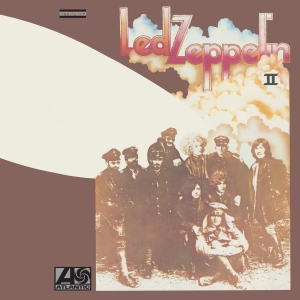
Led Zeppelin II is the second studio album by the English rock band Led Zeppelin, released on 22 October 1969 in the United States and on 31 October 1969 in the United Kingdom by Atlantic Records. Recording sessions for the album took place at several locations in both the United Kingdom and North America from January to August 1969. The album's production was credited to the band's lead guitarist and songwriter Jimmy Page, and it was also Led Zeppelin's first album on which Eddie Kramer served as engineer.

Texas are a Scottish rock band from Glasgow. They were founded in 1986 by Johnny McElhone and Sharleen Spiteri on lead vocals. Texas made their performing debut in March 1988 at the University of Dundee. They took their name from the 1984 Wim Wenders movie Paris, Texas.

Third is the third album by American rock band Big Star. Sessions started at Ardent Studios in September 1974. Though Ardent created promotional, white-label test pressings for the record in 1975, a combination of financial issues, the uncommercial sound of the record, and lack of interest from singer Alex Chilton and drummer Jody Stephens in continuing the project prevented the album from ever being properly finished or released at the time of its recording. It was eventually released in 1978 by PVC Records.
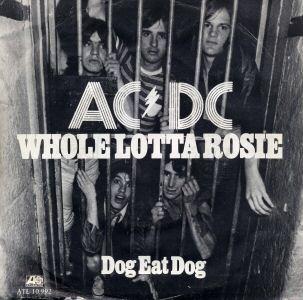
"Whole Lotta Rosie" is a song by Australian hard rock band AC/DC. It is the eighth and final track on the band's fourth Australian album, Let There Be Rock, released in Australia in March 1977, and was written by Angus Young, Malcolm Young, and Bon Scott. It is also the eighth and final track on the international version of the album, released in June the same year.

"Whole Lotta Love" is a song by British rock band Led Zeppelin. It is the opening track on the band's second album, Led Zeppelin II, and was released as a single in 1969 in several countries; as with other Led Zeppelin songs, no single was released in the United Kingdom. In the United States, it became their first hit and was certified gold. Parts of the song's lyrics were adapted from Willie Dixon's "You Need Love", recorded by Muddy Waters in 1962; originally uncredited to Dixon, a lawsuit in 1985 was settled with a payment to Dixon and credit on subsequent releases.

The Gap Band was an American R&B and funk band that rose to fame during the 1970s and 1980s. The band consisted of three brothers: Charlie, Ronnie, and Robert Wilson, along with other members; it was named after streets in the historic Greenwood neighborhood in the brothers' hometown of Tulsa, Oklahoma.
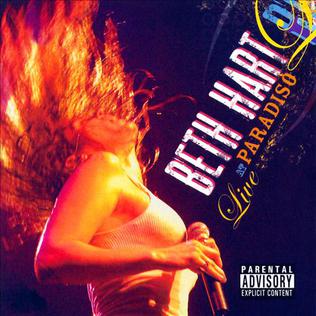
Live at Paradiso is a live album by American singer-songwriter Beth Hart, released in 2005 by Universal. It was recorded at a live performance at the music venue Paradiso in Amsterdam, the Netherlands. A DVD version is also available. The DVD contains 3 more songs. The album peaked No. 88 in the Netherlands.

Elvis Country is the 13th studio album by American singer and musician Elvis Presley, released on RCA Records in January 1971. Recorded at RCA Studio B in Nashville, it reached number 12 on the Billboard 200. It peaked at number six in the United Kingdom, selling over one million copies worldwide. It was certified Gold on December 1, 1977, by the Recording Industry Association of America.

The Dirty Mac was a name given by John Lennon to a temporary supergroup he organised in December 1968 that featured Eric Clapton, Keith Richards, Mitch Mitchell and himself. The band assembled for a one-off performance on the Rolling Stones' TV special titled The Rolling Stones Rock and Roll Circus. The Dirty Mac played Lennon's Beatles composition "Yer Blues" and "Whole Lotta Yoko", an extended blues improvisation in which they were joined by Lennon's wife Yoko Ono and violinist Ivry Gitlis. The TV special, which included appearances by the Rolling Stones, the Who and Jethro Tull, among others, did not air as originally planned and was not released officially until October 1996.

Let There Be Rock: The Movie – Live in Paris is a live double album by the hard rock band AC/DC, released as "Disc Two" and "Disc Three" of the Bonfire box set in 1997. It is also the soundtrack to the film AC/DC: Let There Be Rock. It is the last album Bon Scott recorded with the band before he died, just two months before his death and was released posthumously.
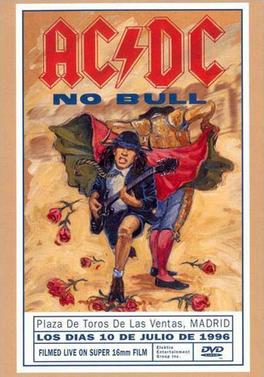
No Bull is a live video released by AC/DC in November 1996, filmed on Super 16mm at Madrid's Plaza de Toros de Las Ventas on 10 July 1996 during the Ballbreaker world tour. It was directed by David Mallet, produced by Rocky Oldham, mixed by Mike Fraser, and edited by David Gardener and Simon Hilton; production company was Serpent Films.
Reverse echo and reverse reverb are sound effects created as the result of recording an echo or reverb effect of an audio recording played backwards. The original recording is then played forwards accompanied by the recording of the echoed or reverberated signal which now precedes the original signal. The process produces a swelling effect preceding and during playback.

Extended Versions is a live album that was recorded by the rock group Foreigner on November 26, 2005 at Texas Station in North Las Vegas, Nevada. This is part of a long-running budget live series started by BMG in the late 1990s. The European release contains two more tracks: “That Was Yesterday” and “Blue Morning, Blue Day”.

The Other Side of the Mirror is the fourth solo studio album by American singer and songwriter Stevie Nicks. Released on May 30, 1989, through the Modern Records label, the album was recorded in California, New York, and Buckinghamshire in England, and is loosely based around the theme of Lewis Carroll's novel Alice's Adventures in Wonderland (1865).
The Hi-Fives are an American rock band from the San Francisco Bay Area.

Call of the Wild is the third studio album by American country music singer Aaron Tippin. Released in 1993 on RCA Records Nashville, it produced the singles "The Call of the Wild", "Honky-Tonk Superman", "Workin' Man's Ph.D.", and "Whole Lotta Love on the Line". Of these, only "Workin' Man's Ph.D" reached Top 10 on the U.S. Billboard country charts. The album was produced by Scott Hendricks, unlike Tippin's first two albums which were produced by Emory Gordy, Jr.
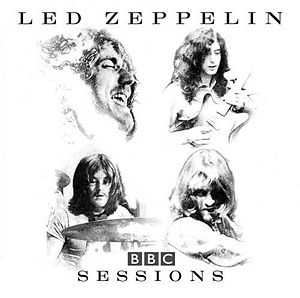
BBC Sessions is a compilation album featuring studio sessions and a live concert recorded by English rock group Led Zeppelin for the BBC. It was released on 17 November 1997, by Atlantic Records. Disc one consists of material from four different 1969 BBC sessions. Disc two contains most of the 1 April 1971 concert from the Paris Theatre in London. Disc three was only included in a limited run of album releases and features rare interviews from 1969, 1976/1977, and 1990.

Aretha Live at Fillmore West is a live album by American singer Aretha Franklin. Released on May 19, 1971, by Atlantic Records. It was reissued on compact disc in 1993 through Rhino Records. An expanded, limited edition 4-CD box set entitled, Don't Fight the Feeling: The Complete Aretha Franklin & King Curtis Live at Fillmore West was released by Rhino in 2005. This was limited to 5000 numbered copies. In addition, there is a guest duet vocal by Ray Charles on "Spirit in the Dark".

"Lotta Love" is a song written and recorded by Neil Young and released on his 1978 Comes a Time album. "Lotta Love" was also covered by Nicolette Larson in 1978. Larson's version reached No. 8 on the Billboard Hot 100 chart and No. 8 on the Cash Box Top 100 in February 1979. It also hit No. 1 on the Easy Listening chart and was a hit in Canada,, Australia and New Zealand.

"You Need Love" is a song with lyrics written by American blues musician Willie Dixon. The instrumentation was recorded first by slide guitarist Earl Hooker and backing musicians, then Chicago blues artist Muddy Waters overdubbed vocals, and Chess Records released it as a single in 1962.


















